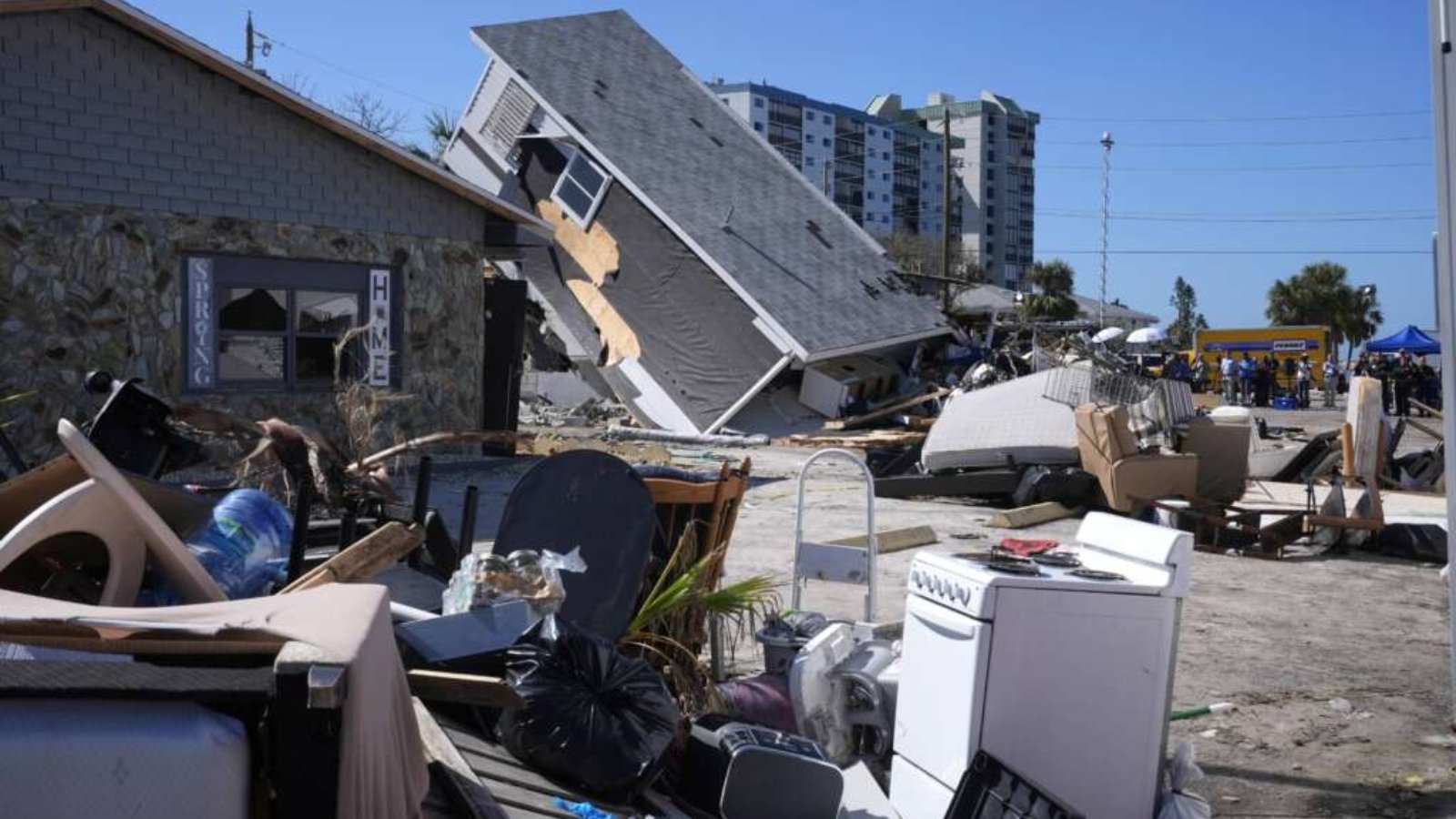The Small Business Administration’s disaster assistance loan program has run out of money after two devastating hurricanes hit the southern United States. And now the agency and some Senate Republicans are butting heads over the fund’s management.
Sens. Joni Ernst (R-Iowa), ranking member of the Small Business and Entrepreneurship Committee, Tim Scott (R-S.C.), Jim Risch (R-Idaho) and Todd Young (R-Indiana) say in a new letter to SBA Administrator Isabel Guzman that they have deep concerns about how the agency has monitored the disaster loan assistance program.
“[T]he SBA failed to follow the law and only provided the statutorily required written notification of a need for supplemental funding on Oct. 10, days after news stories broke,” the lawmakers wrote. “Under existing law, the SBA already has several reporting requirements to provide Congress with sufficient notification and information before any shortfall occurs in its disaster account. Unfortunately, the SBA failed to comply, or only partially complied, with several of these provisions and is now, at the 11th-hour, sounding alarm bells. We must consider whether SBA’s internal decisions were the catalyst for this unfortunate situation.”
A SBA spokesperson pushed back against the agency sounding “11th hour alarm bells.”
“The SBA first raised the need for additional funds to Congressional appropriators in September 2023. Since then, the agency has provided several bipartisan briefings and made many proactive requests to ensure the disaster loan program remains funded at a sufficient level,” the spokesperson said in an email to Federal News Network. “While SBA’s requests were unfortunately not fulfilled, the agency continues to stand ready to work with Congress so that the tens of thousands of small business owners, homeowners and renters devastated by Hurricanes Helene and Milton can get the funding needed to rebuild their homes and lives.”
Number of disaster loan applications on the rise
At the heart of the matter is SBA’s recent request to Congress for additional money for the disaster assistance loan fund. SBA has run out of money after responding to multiple hurricanes and 34 other disasters across 24 states over the last year.
President Joe Biden most recently asked lawmakers about the need for more funding to help respond to the disasters on Oct. 4. SBA followed with a letter to the Senate Appropriations Subcommittee on Financial Services and General Government on Oct. 10 outlining its request for more money.
“At a time when many disaster survivors are looking for help and support, a lack of SBA disaster loans will impact recovery across the nation. Homeowners will be unable to access low-interest rate loans to replace their personal property damaged in a storm. Small businesses will be unable to access SBA funding to replace damaged equipment or inventory and cover economic injury from business disruption,” Guzman wrote in the letter. “For those who have experienced physical damage to their properties, no SBA funding will be available to homeowners, renters, small businesses or nonprofits seeking to rebuild. Some reconstruction projects may be placed on hold and many small businesses may not be able to reopen without SBA disaster loans. Without SBA disaster lending, survivors may be forced to seek higher-cost options in the private sector — if they can secure funding at all. SBA is often the lender of last resort for many disaster borrowers who cannot access credit elsewhere.”
So far, the SBA has received more than 37,000 applications for relief from those impacted by Hurricane Helene and made more than 700 loan offers totaling about $48 million. It has received more than 12,000 applications from those impacted by Hurricane Milton.
The SBA is pausing new loan offers until it gets more funding, which means loans that have not already been offered will be delayed by at least a month. Guzman said people should keep applying for the loans, however.
Senators say SBA’s communication fell short
The senators’ concerns revolve around several areas where they say SBA fell short. For example, the lawmakers say the agency has more than $550 million in disaster administrative expenses account, but hasn’t asked to reprogram any of that funding.
Additionally, they say SBA’s decision to administratively change its disaster loan program terms in 2023, and again in 2024, led to a substantial increase in its subsidy rate, which the SBA failed to properly model and did not properly notify authorizers of the ramifications of these changes.
“Despite the SBA providing some information on a monthly basis, critical statutorily required components failed to be included, such as ‘an estimate of how long the available funding for such loans will last, based on the spending rate’ and ‘an estimate of how long the available funding for salaries and expenses will last, based on the spending rate,’” the lawmakers wrote. “Had the SBA shared this information with the authorizing committees each month, as required by law, a clear picture of the disaster loan account’s spend rate would have allowed Congress to take steps to ensure disaster victims would receive all necessary federal assistance.”
But SBA said it alerted lawmakers about the need for more funding starting back in September 2023 after wildfires struck Hawaii.
Multiple funding requests to Congress
It tried again in March 2024 after the Francis Scott Key Bridge disaster, and then the agency tried again over the summer due to storm surges, tornadoes and other disasters hitting the United States.
Then, starting in August 2024, SBA said it has been urging House and Senate appropriations and small business committees as well as congressional leadership to provide an additional $1.6 billion in emergency disaster loans funding.
SBA said it also gave several bipartisan briefings and provided legislative language to Congress, but lawmakers did not include any additional money in the September continuing resolution spending package.
In fact, in the CR, Republican lawmakers “celebrated” the inclusion of funding for disasters as a “Democrat loss,” according to an internal email obtained by Federal News Network.
The email highlighted several of these “losses,” including shifting $12 billion in veterans money onto the mandatory ledger to create more room to spend next year and turning off rescissions such as the IRS rescission and rescissions of COVID money, which the Republicans said would have caused the CR to exceed fiscal 2025 spending caps.
The senators want SBA to respond with data and reports by Oct. 21.
Copyright © 2024 Federal News Network. All rights reserved. This website is not intended for users located within the European Economic Area.


